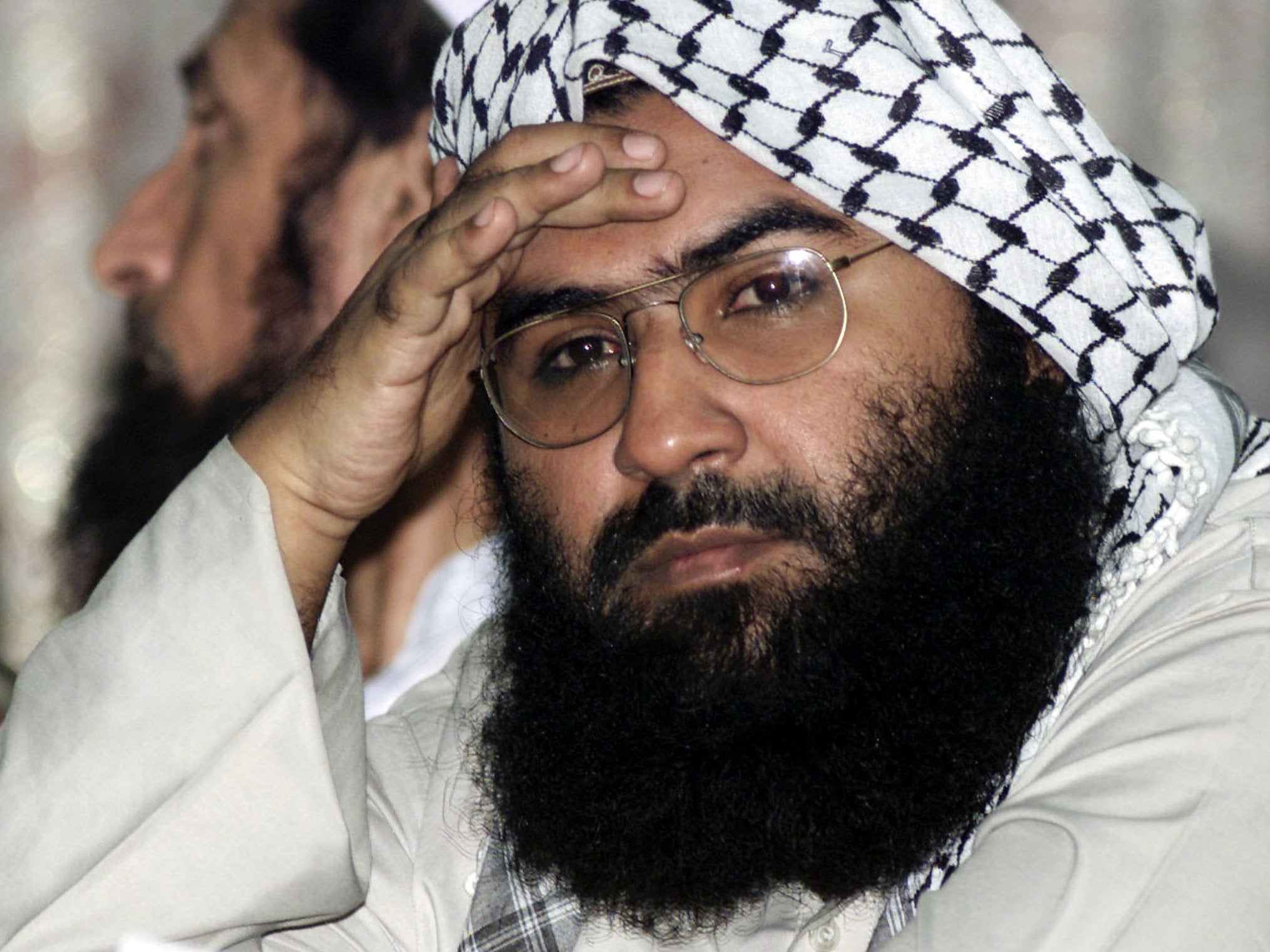Masood Azhar: India wants Pakistan blacklisted after UN names militant leader a global terrorist
Global watchdog has said Pakistan ‘does not demonstrate a proper understanding’ of terrorism financing risks

Your support helps us to tell the story
From reproductive rights to climate change to Big Tech, The Independent is on the ground when the story is developing. Whether it's investigating the financials of Elon Musk's pro-Trump PAC or producing our latest documentary, 'The A Word', which shines a light on the American women fighting for reproductive rights, we know how important it is to parse out the facts from the messaging.
At such a critical moment in US history, we need reporters on the ground. Your donation allows us to keep sending journalists to speak to both sides of the story.
The Independent is trusted by Americans across the entire political spectrum. And unlike many other quality news outlets, we choose not to lock Americans out of our reporting and analysis with paywalls. We believe quality journalism should be available to everyone, paid for by those who can afford it.
Your support makes all the difference.India has welcomed the UN blacklisting of militant leader Masood Azhar and said that its next step will be to call for action against Pakistan itself for failing to stop terrorism financing.
Azhar is the leader of the Pakistan-based Jaish-e-Mohammed (JeM) group that claimed responsibility for a major bomb attack that killed 40 Indian soldiers in Pulwama, Kashmir, in February.
In a big diplomatic victory for India, the UN Security Council passed a resolution late on Wednesday to add Azhar to a list of global terrorists, meaning he will face a travel ban, a freeze on his assets and an arms embargo.
India’s foreign ministry said it welcomed the decision, which it has been lobbying for for more than a decade. Azhar’s designation was “a step in the right direction to demonstrate the international community’s resolve to fight against terrorism and its enablers”, said spokesperson Raveesh Kumar.
The government will now ask the global money laundering and terror finance watchdog, the Financial Action Task Force (FATF), to move Pakistan from its “grey list” to its full blacklist of countries with inadequate controls to curb money laundering and terrorism financing.
Speaking on Thursday, India’s finance minister Arun Jaitley said: “We want Pakistan downgraded on the FATF list.” He said the FATF would meet in mid-May and India would make its request then.
In February, the FATF said Pakistan “does not demonstrate a proper understanding” of terrorism-financing risks posed by militant groups, including the JeM.
The watchdog can make recommendations to any member states, as well as to other nations, but it has no power to impose sanctions.
“The core issue is that he [Azhar] has been declared an international terrorist,” Mr Jaitley said.
“He and his country now face the consequences of that.”
JeM has been operating out of its base in Pakistan since it was founded by Azhar in 1999, after he was released by India in an exchange with militants who had hijacked an Indian Airlines plane.
The fact that Azhar has been able to live freely within Pakistan has been a source of contention between the country and its western allies for many years. Previous attempts by the likes of the US, France and the UK to raise Security Council sanctions against Azhar have been blocked by China, a close Pakistani ally.
A senior US administration official told reporters on Wednesday that “after 10 years China has done the right thing by lifting its hold on this designation” of Azhar.
The final straw appears to have been the devastating attack on a convoy of Indian security personnel in Kashmir on 14 February this year.
In the attack, a young local separatist militant named Adil Ahmad Dar drove a car full of explosives into a convoy carrying Indian paramilitary officers.
Dar’s family told The Independent in interviews that he was motivated to act by past harassment by Indian security forces, including one incident where an Indian solder shot him in the leg.
But JeM, which lists Kashmir’s separation from India as one of its primary goals, claimed responsibility for the attack, and India launched its first airstrikes on a JeM-linked target in Pakistani territory in response.
Pakistan confirmed Azhar had been sanctioned at a press conference in Islamabad. Foreign ministry spokesperson Mohammad Faisal noted that prime minister Imran Khan had already ordered a crackdown on assets and property linked to JeM in the wake of the Pulwama bombing.
Pakistan has also detained dozens of people suspected of involvement in the attack, though its own investigations have not found any direct link between Azhar or his group and the actions of the bomber, Dar.
Join our commenting forum
Join thought-provoking conversations, follow other Independent readers and see their replies
Comments